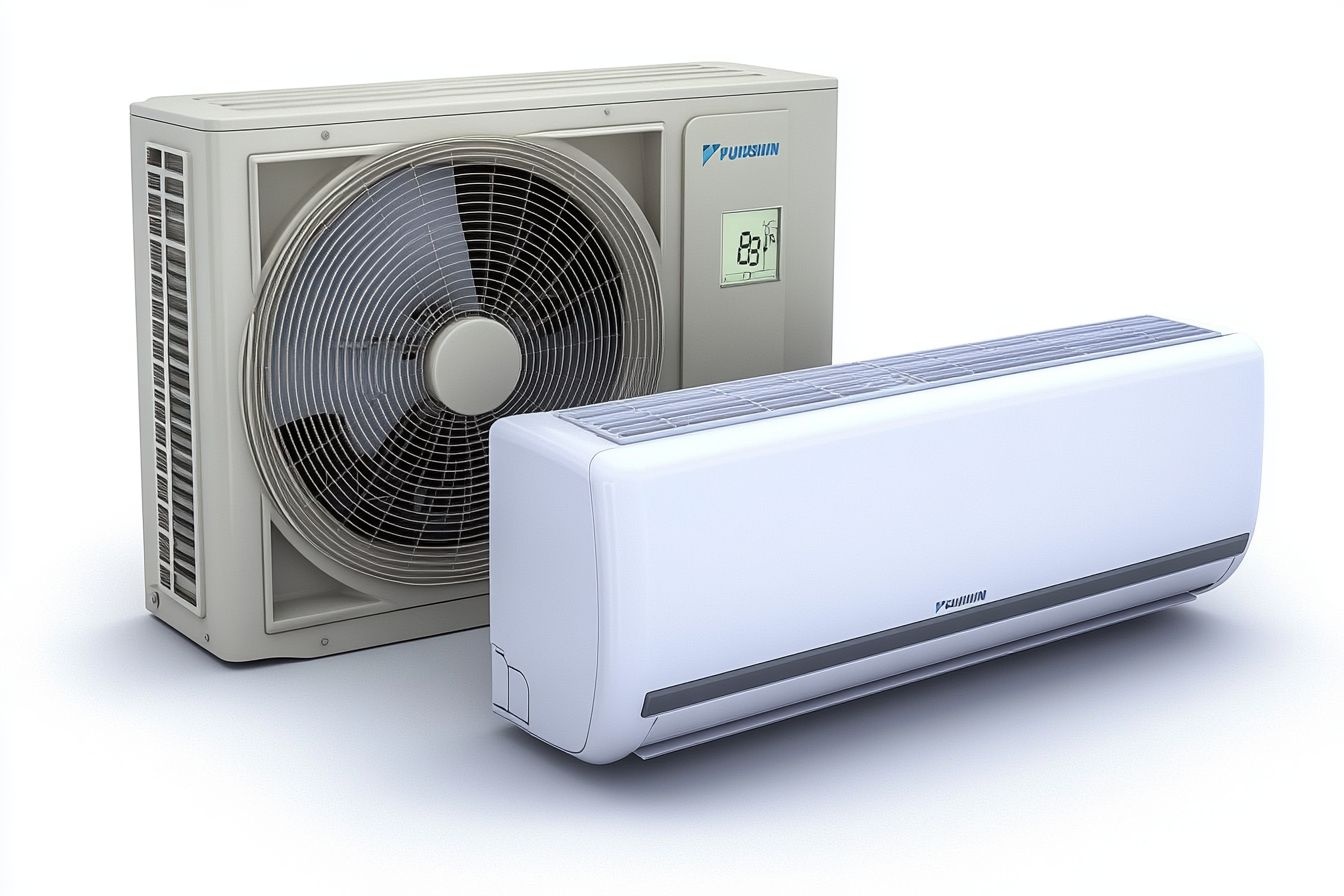The Ultimate Heat Pump Guide: Why Modern Heat Pumps Are Your Best Choice
Heat pumps have revolutionized home heating and cooling, offering an energy-efficient alternative to traditional HVAC systems. As we delve into this comprehensive heat pump guide, we'll explore why modern heat pumps are increasingly becoming the best choice for homeowners across Canada. From their eco-friendly operation to their year-round functionality, heat pumps are transforming the way we think about climate control in our homes.

What exactly is a heat pump and how does it work?
A heat pump is an innovative device that transfers heat from one place to another, rather than generating heat itself. It works on the principle of heat exchange, similar to how a refrigerator operates. In heating mode, a heat pump extracts heat from the outside air, ground, or water source and moves it indoors. In cooling mode, it reverses this process, removing heat from inside your home and expelling it outdoors.
The system consists of an outdoor unit (containing the compressor and condenser) and an indoor unit (the air handler). Refrigerant circulates between these units, absorbing and releasing heat as it changes states from liquid to gas and back again. This process allows heat pumps to provide both heating and cooling capabilities, making them a versatile solution for year-round comfort.
Why are modern heat pumps considered more efficient?
Modern heat pumps are considered more efficient than traditional heating and cooling systems for several reasons. Firstly, they don’t create heat; they simply move it, which requires less energy. This process can be up to 300-400% efficient, meaning for every unit of electricity used, 3-4 units of heat are produced. In contrast, even the most efficient gas furnaces are only about 95% efficient.
Advancements in technology have also significantly improved heat pump performance. Variable-speed compressors allow heat pumps to adjust their output based on demand, reducing energy waste. Improved defrosting capabilities and better cold-climate performance have extended their usefulness in colder regions. Additionally, smart controls and zoning options enable more precise temperature management, further enhancing efficiency.
What types of heat pumps are available for Canadian homes?
Canadian homeowners have several types of heat pumps to choose from, each suited to different needs and environmental conditions:
-
Air-source heat pumps: The most common type, these extract heat from the outside air. They’re relatively easy to install and work well in moderate climates.
-
Ground-source (geothermal) heat pumps: These systems use the earth’s constant underground temperature to heat and cool homes. While more expensive to install, they’re highly efficient and work well in extreme climates.
-
Water-source heat pumps: Ideal for homes near water bodies, these systems extract heat from water sources like lakes or wells.
-
Ductless mini-split heat pumps: Perfect for homes without existing ductwork, these systems can heat or cool individual rooms or zones.
-
Hybrid heat pumps: These combine a heat pump with a backup heating system, usually a gas furnace, to ensure comfort in extremely cold temperatures.
How do heat pumps perform in Canada’s cold winters?
One of the most common concerns about heat pumps in Canada is their performance during harsh winters. While older models struggled in sub-zero temperatures, modern heat pumps have made significant strides in cold-climate performance.
Many of today’s heat pumps can operate efficiently at temperatures as low as -25°C to -30°C. They achieve this through technologies like enhanced vapor injection, which allows for higher heating output at lower temperatures. Some models also incorporate backup electric resistance heating for extremely cold days.
It’s worth noting that while efficiency may decrease as temperatures drop, heat pumps can still provide substantial energy savings compared to traditional heating methods, even in cold climates. The key is to choose a heat pump model specifically designed for cold weather performance.
What are the environmental benefits of choosing a heat pump?
Choosing a heat pump comes with significant environmental benefits, making it an attractive option for environmentally conscious homeowners. Heat pumps produce no direct emissions at the point of use, unlike gas furnaces or oil-based heating systems. When powered by renewable electricity, they can provide nearly emission-free heating and cooling.
Heat pumps also contribute to reduced overall energy consumption. Their high efficiency means less electricity is needed to maintain comfortable temperatures, leading to lower greenhouse gas emissions from power generation. Additionally, by providing both heating and cooling in one system, heat pumps reduce the need for separate air conditioning units, further decreasing energy use and potential refrigerant leaks.
How do heat pump costs compare to traditional HVAC systems?
When considering a heat pump, it’s important to understand the cost implications compared to traditional HVAC systems. While the initial investment for a heat pump may be higher, the long-term savings can be substantial.
| System Type | Average Installation Cost | Annual Operating Cost* |
|---|---|---|
| Heat Pump (Air-Source) | $4,000 - $8,000 | $500 - $1,000 |
| Gas Furnace | $2,500 - $6,000 | $800 - $1,500 |
| Central AC | $3,000 - $7,000 | $300 - $600 |
| Geothermal Heat Pump | $10,000 - $30,000 | $300 - $800 |
*Annual operating costs can vary based on local energy prices, climate, and home size.
Prices, rates, or cost estimates mentioned in this article are based on the latest available information but may change over time. Independent research is advised before making financial decisions.
While the upfront cost of a heat pump may be higher than a traditional furnace or air conditioner, the combined functionality of heating and cooling in one system can offset this initial investment. Moreover, the superior efficiency of heat pumps often results in lower monthly energy bills, potentially leading to significant savings over the system’s lifetime.
In conclusion, modern heat pumps offer a compelling combination of efficiency, versatility, and environmental benefits. Their ability to provide both heating and cooling, coupled with advanced technologies that enhance performance in cold climates, makes them an excellent choice for Canadian homes. While the initial investment may be higher than traditional HVAC systems, the long-term energy savings and reduced environmental impact make heat pumps a smart choice for homeowners looking to modernize their home comfort systems.




